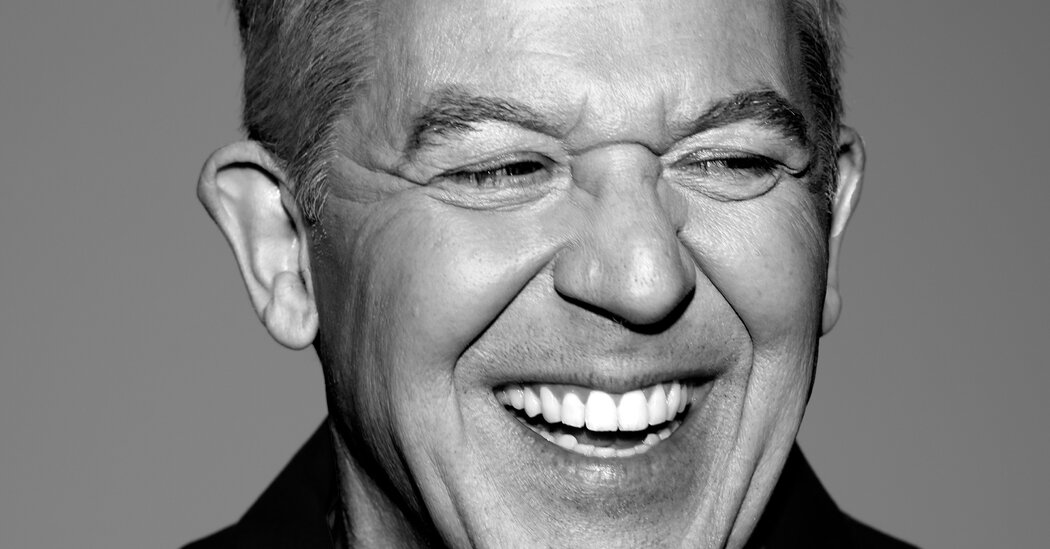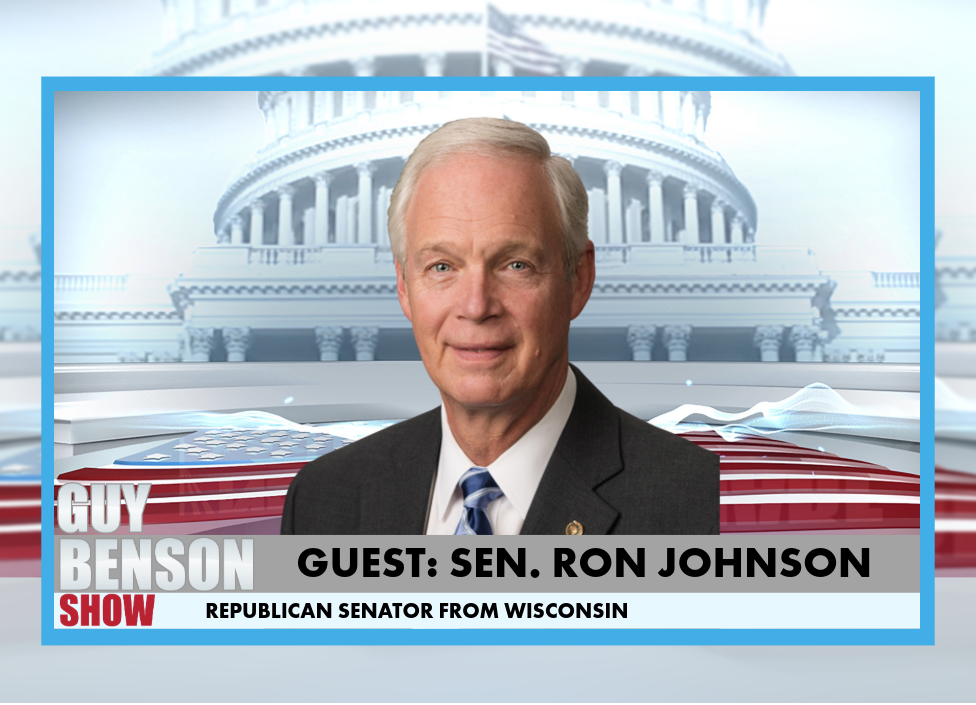Copyright The New York Times

Why can’t conservatives break through on late-night TV? For years, that was an open cultural question. The left, of course, had “The Daily Show” and “Last Week Tonight With John Oliver,” among others. Once the Trump era began, progressives could also point to hosts like Stephen Colbert, Jimmy Kimmel and Seth Meyers as being politically simpatico. The right had, well, no one. That is, until Greg Gutfeld. Formerly a health and men’s magazine editor, Gutfeld joined Fox News in 2007 to helm the later-than-late-night chat free-for-all “Red Eye.” He worked his way up the network’s schedule, and in 2021 his new show, “Gutfeld!” started airing on weekday nights at 11 p.m. on the East Coast. (It’s now on at 10 p.m.) Its format is different from traditional host-driven late-night shows: Rather than interview celebrity guests, Gutfeld presides over a round table of regular panelists, among them the former professional wrestler Tyrus and the commentator Kat Timpf, the designated (occasional) contrarian. The overall vibe is insult-heavy, aggressively anti-woke and relentlessly pro-conservative. It’s a successful formula. The show averages over three million viewers a night — numbers that dwarf its competitors’. So Gutfeld, who is also a host of the daytime show “The Five” alongside Dana Perino and Jesse Watters, can now credibly lay claim to the title “king of late night.” (Also the name of his 2023 nonfiction book.) But it’s a kingdom in turmoil, with CBS announcing it is canceling “The Late Show With Stephen Colbert” next year and ABC briefly suspending Jimmy Kimmel’s show after comments he made related to Charlie Kirk’s murder. Those decisions were viewed by many as politically motivated and also as a possible infringement on free speech. This at a time when questions about the long-term future of late night as a viable genre — as well as censorship in comedy — are thick in the air. About all that, and much more, Gutfeld had plenty to say about in his own pugnacious fashion. I want to start with the biggest stories in late night this year: the impending cancellation of Colbert and Kimmel’s suspension. Do you remember what your immediate reaction to the news of both was? Why did it take so long? I had crushed them like bugs, David. I’d crushed them and thrown them into the wind, and they were still here. I call it entertainment welfare. The only reason why they were around for so long, despite the fact that their numbers were dropping, was the fact that they toed the line. I don’t think it was political. I didn’t know anybody — and I’m counting my many liberal friends — who watched them, and I think it’s because it wasn’t entertainment anymore. It was more like a therapy session for people that were upset at the world. You don’t give any credence to the notion that there were larger corporate-political considerations that went into what happened? I don’t think so. There’s never been anybody who’s ever really folded because of Trump saying, “You suck.” Was it extra noise in the story? Probably. But I honestly think that the grumbling was already there. So you must lovethe women of “The View.” Yes! I love Whoopi. You must be a big fan of Rosie O’Donnell? I put the people I don’t know in a different kind of room, but I make fun of everybody that I love, and relentlessly. There are a lot of conservative commentators who will not be teased: This is a very serious vocation. I think the success of “Gutfeld!” and the success of “The Five” is based on the ability to tease. People try to replicate “The Five,” and they don’t understand: The secret sauce is that we make fun of each other. That’s something that you don’t see on the left at all. There are issues that upset me, but I always step back and go, “This thing cannot take over my life.” I say that “Trump derangement syndrome” is now an addiction. It’s creating a filter in which everything you look at, the people that you know, your relationships are all seen through this. “If you don’t see this my way, we’re gonna have a problem.” My reflex, no matter what the story is, is to always put it back in its box so it doesn’t become something that changes the way I view people. You don’t think there’s a way in which your show also sits behind the Trump filter? It’s as if you’re saying it only works one way. Yeah, but there’s a key difference here. I may think you’re wrong; you might think I’m evil. The teasing and the ridicule is not “You’re Hitler” or “You’re a fascist.” If I insult you over the top, it’s obviously a joke. I don’t put a target on your back. I think you’re being a little disingenuous. Am I really? I read all your books. The most blatant counterexample to what you’re talking about is, you literally use the phrase: “The left are dumb fascist mothereffers.” What book was that? Your most recent one, “The King of Late Night.” I’ll have to look back at that. What was the context? The left. Who was I talking about? The left. It was a blanket statement. I don’t remember the specific context. Was it part of some kind of amplifying narrative — where it’s like, “These people are a threat to democracy,” “It’s gonna lead to World War III”? This is the most damaging thing that has happened in the United States, I believe, because if you look at everything from the Palisades fire to Charlie Kirk getting shot, these are all the product of amplified narratives. The repetition, the brainwash, the persuasion of being told over and over again. I’d have to look at that and see what I said. I imagine that it was in some kind of paragraph of hyperbole where I was having fun, if it was in all caps especially. Or I could have been mocking the actual language. I don’t know, I’d have to trust you on that. You seem like a nice guy — for now, anyway. You called Colbert a “smug loser” or something like that. And the one that stood out for me about Kimmel was: “If that man was any more full of [expletive], he’d be a colostomy bag.” I have this thing called the hierarchy of smears, and that means if you call somebody a fascist who’s going to destroy the world, I can call you anything. I made this point in an article by The New York Times on Kat Timpf, but they didn’t include it, which bummed me out. The writer was in the “Gutfeld!” audience, and she said: “During the show, you made all of these fat jokes — there were so many of them. And I’m sitting in your audience and, you know, there’s some overweight people.” And I said, “Yeah, but they didn’t call me Hitler.” That’s the difference. It goes back to that framing: I think you’re wrong; you think I’m evil. And I’m never going to call somebody fat because they’re fat. I’m going to call you fat if you called me Hitler. And the best part about that is it hurts them. It hurts them more than if they were to call me Hitler because they have to look in the mirror every day. I know I’m not Hitler. They know they’re fat. Charming. Kat makes fun of me over this. “Greg, you’re trying to turn calling people fat into a heroic endeavor.” But again, stop calling me a Nazi or Hitler or a fascist, and I’ll lay off the physical stuff. But the physical stuff doesn’t come close to ascribing this moral evil to somebody that then generates animosity among people who might do something to you, who might come to your house. That’s what I think. Does that make sense? I understand what you’re saying. That’s not the same as saying I think it makes sense. I’ll take “I understand what you’re saying” as “making sense.” There’s the idea that you’re willing to take risks in things you say and push against various orthodoxies. What would be the risky thing to say to your audience, and are those risks you’re willing to take? I have offended my audience if I am too flippant on religion, but my audience is pretty generous because it didn’t exist until I got there, and so they’re aligning with me in a way. Do you remember what it was about religion that you said that offended your audience? Might have just been using the Lord’s name in vain. That will always piss people off. Also, religious people are such nice people. They don’t write angry letters. [I made a skeptical face in response to this claim.] Well, The New York Times: product of the devil, David, let’s be honest. Someone who works at Planned Parenthood might have a different opinion about how polite the religious letter writers are. Well, I mean, they are killing children, so that’s part of the game! [Laughs.] In your face! You worked for a long time in the men’s health world at Men’s Health magazine and Prevention magazine. Given that experience, and seeing a lot of health fads come and go, what do you make of the MAHA movement? When I was working at Prevention or Men’s Health, the anti-vax movement was very tough, and it was always focused around this Lancet study. I think it’s been completely debunked, but it still existed, so that used to drive me crazy. My wife worries about the grouping of vaccines. And there are questions about other vaccines, whether it’s Covid or Hep C. But I have a fairly skeptical eye. There was some weird [expletive] working in health magazines. The reverse-circumcision movement, guys who wanted their foreskin back, that was a thing. There was a woman that once tried to convince me she could use sound waves to cure AIDS. I would run into the weirdest stuff. Given your skepticism, doesn’t it seem like there’s a lot that’s ripe to be made fun of with the MAHA movement and anti-vax stuff? And why don’t you do it? I do! You give a comment every now and then, but you don’t consistently make fun of it. The autism thing I’m really worried about, but I’m waiting to see what happens. What would you need to see happen? That they say it’s not vaccine related, which I don’t think it is. I do think: At least the dude’s fit. And so you have a 1-year-old now? She’s 10 months. Are there ways in which being a father has changed your disposition to the world or what you would like the world to look like? I don’t think it can make me more anti-crime than I already was. When I’m walking around, I go: Do we have to move out of the city? What happens if we get this new mayor? But it kind of makes you forgive everything bad you did prior to that. You can’t have a regret for something. If you were to change that, this person wouldn’t be here. I wouldn’t change anything. Which is great, because if you spent decades being a reprobate, now I can say to myself: Well, I was an [expletive] for these four years. These other years, I was vacant, but it all led to this. So, in a book you wrote called “Not Cool: The Hipster Elite and Their War on You,” there were two stories that you mention as still lingering with you. One involved a group of kids in the fifth grade, the Sharks. Do you want to quickly tell that story? It’s almost like the first real experience I had with groupthink. It was after an episode of “Happy Days” or something where there was a gang in it, and everybody the next day wanted to be in a gang, and they just decided they were the Sharks. But I wasn’t going to be one. And I think I was mad because I wasn’t even included in it. It was the first time I ever felt that, being excluded. And also how stupid they were acting as a mob. I think that has always been following me around a little bit. In that book, you say you were banished, and you’ve been banished ever since. And then you also tell a story about a kid named James in kindergarten. Black kid? Yeah. It was weird, because we were best friends. And then I run into him, I don’t know, seven years later, and he saw me as a completely different person. Like I didn’t exist. And it was just like, what happened? And what do you think happened? I think he realized we were two different races and that he had no need for me. That was basically it. When I read those two stories, because you singled them out as being formative, I thought, these are about resentment at being rejected. And I wonder how much resentment, and also a desire to pre-emptively reject before you’re rejected, drives what you do now. Because the subtext of all your work is “eff you” to other groups. I think that’s simplistic, but there is a kernel of truth. Almost all resentments have your role in it, right? It takes two to tango. Yeah. Why do you get mad when somebody gets a promotion over you or you get fired? It’s usually self-doubt. Maybe I’m not good enough. Like, is that person better than me? I think that’s a normal human thing. I can feel that. I don’t think I feel that anymore. But I’m sure back in the day I did. And I would forget the fact that when I would get into my next role, it would be better. I didn’t have faith in myself to actually do better. Gutfeld and I spoke again the following week. Earlier you expressed this idea that a lot of damage has been done in the country as a result of what you called amplified narratives: politically oriented repetition, persuasion, kind of brainwashing. Help me understand how it’s not at least a little bit hypocritical to say that. Because even if it’s nominally comedy that you’re doing on “Gutfeld!” you’re repeating the same ideas over and over again. Which are, basically, that the idiots on the left are ruining the country. So how are you not part of the problem that you’re diagnosing? I do my best not to call people Nazis. I do my best not to put targets on people’s back. Now, there might be times that I violate that, but I pretty much try to hold myself to that standard. So I don’t think it’s hypocritical. And by the way, this is not an uncommon thing. Everything from the Democrats, when it comes to trying to persuade, is always fear. It’s a threat to the planet, it’s a threat to democracy, it’s a threat to your children. “If you do not agree with our beliefs on trans, this child will commit suicide.” “What would you rather have, a live daughter or a dead son?” That’s the rhetoric that I hear all the time. I try my best not to use it. The crackpottery on the right is usually driven from an internal paranoia and internal conspiracy. It might be welcome in some chat rooms, but it’s not welcomed in the media. In fact, we have a pretty good track record of distancing ourselves from crazy people. OK, sure. When we were leaving [after our first interview] — and you can tell me if this is off base and edit it out if you want — you said that you have a hard time getting people from the right on your show. And you said it’s probably because they feel that they don’t need to do it, or like they know that there’s a risk involved. And I understand that, because I encounter the same thing with my show. There are people that will want to do my show, but they won’t do it because there’s a risk involved. But I still did this interview, even though I felt that there was a risk involved. And you know who persuaded me to do it? Who? Fox. Fox wanted me to do this, because anytime there is something like this, Fox will say, “This is a great thing to get out in front of people and let them hear you.” And I’m like: “What’s the point? I don’t see the point.” So I think people have to understand that we put ourselves out there when almost nobody ever does. By the way, are you OK with me talking about this? I don’t know the answer — I apologize. It’s just that it stuck with me, because I was thinking, I didn’t want to do this interview, because I was weighing the risk benefits, and I couldn’t see the benefits, but I could see the risks. I think I said to you, like, “Why walk a tightrope between two buildings when you could just cross the street?” There’s an idea that the right is now the cool side and the left are the scolds. You wrote a whole book called “Not Cool,” defining yourself in opposition to being cool. How do you think about what cool is now and what benefits it confers and what flaws it might conceal? It’s a good question. It must have been 20 years ago, I wrote about “the Dean Wormer effect.” Is that the “Animal House” Dean Wormer? Yes. The way people viewed conservatives versus liberals was that the liberals are “Animal House” and the conservatives are always Dean Wormer. My goal was to flip that, and it had to come down to humor. How do people take a joke? I don’t like the word “cool,” but what is considered, I dunno, fun is whatever upsets your teacher. This is where I think the real Trump fandom came into play among young people: how much it pissed off their teachers. Teachers represent the scold, the adult symbol of “You can’t do that.” And that creates a whole thing of, “Oh, yes, we can.” And that’s kind of the flip. That’s where the class clown probably originates. The comic is there to make the teacher crazy. Once the left got too comfortable, got into power, they realized they didn’t have to have a sense of humor anymore. That’s why you saw a lot of people getting canceled. Let’s take that diagnosis to be true. Now that you are the cool one, does that carry any risks? You made arguments in the past that the people who are cool end up being condescending, dismissive, exclusionary. There’s two points to make. I am the last person to think that I’m cool. We can agree on that. [Laughs.] Well, thank you, David. I mean, I’m 61, and I’ve got a Frenchie sleeping at my foot. This is not cool. But there is a danger that when you ascend, you replicate the very practices that you hate. For example, I try never to say “That’s not funny,” because that shouldn’t matter. Funny is subjective. As you probably know, there’s an equal number of people who find me unfunny, and that’s fine. I’m an acquired taste. So I have to remind myself: Whether I find something funny or not is irrelevant. What are you most idealistic about? God, that’s a schmaltzy question, but it has a schmaltzy answer: I really love life. I used to be somebody that expected things to go my way. So when things went well, I just expected it. When things didn’t go well, I was pissed off. And now it’s a very simple filter flip. I expect everything to be difficult, and then when it goes well, I’m incredibly grateful. That one little switch has changed my life. You probably expected this to go badly, and then it went well. Exactly right. If I expected, coming into this interview, that this was going to somehow change my life and I was going to own the libs, then I would be a cranky, cantankerous [expletive]. But in this case, I’m like: We’ll see what happens. He’ll probably have some penetrating questions. He’ll probably try to psychoanalyze me. He might even bring up Dominion. But knowing that ahead of time, I’m pleasantly surprised.



